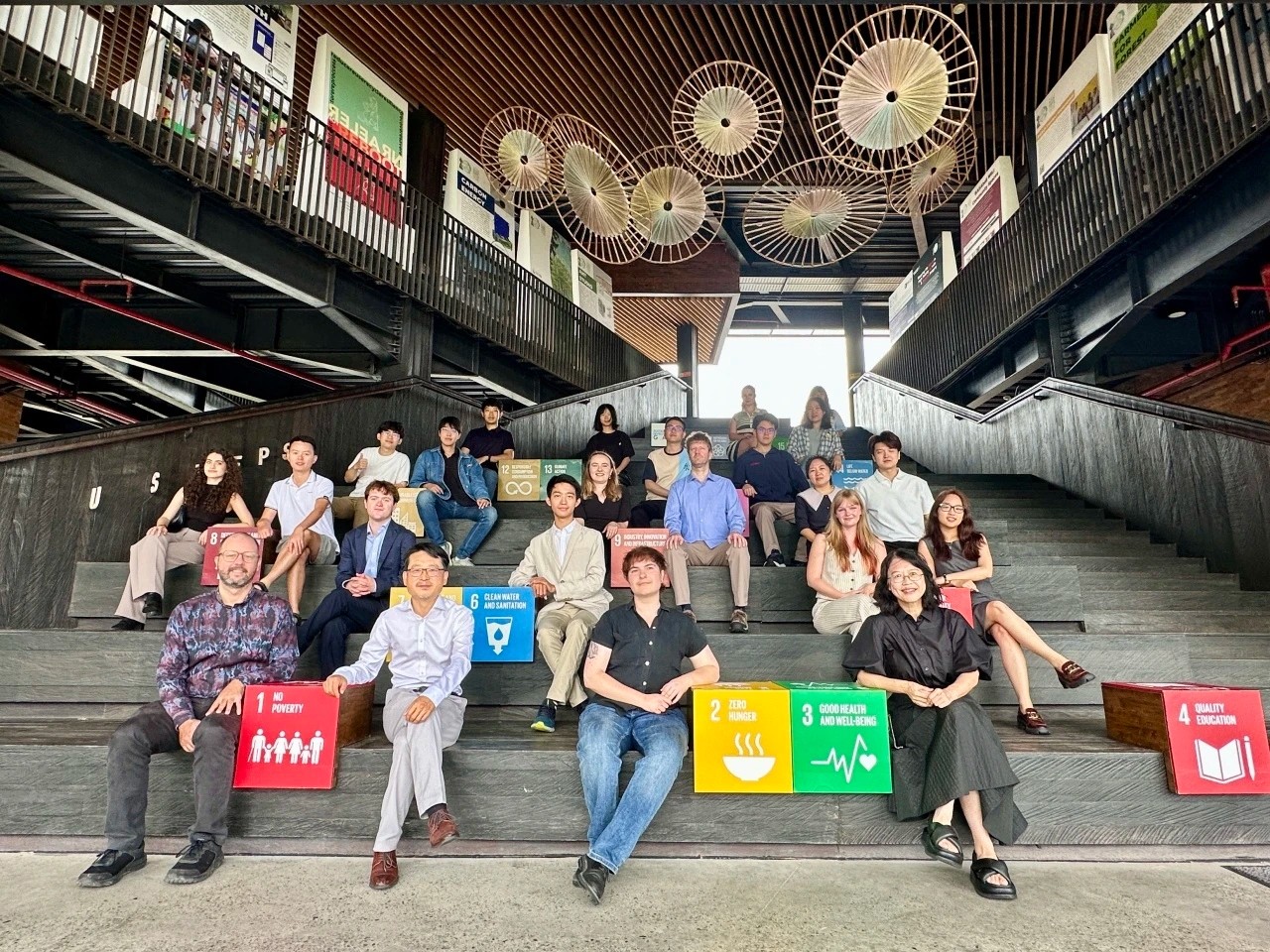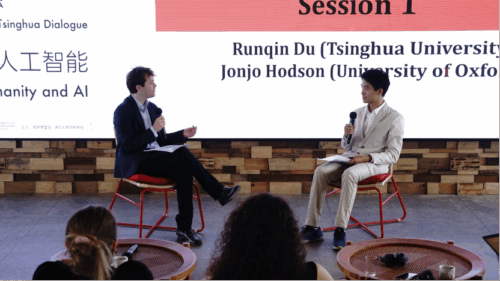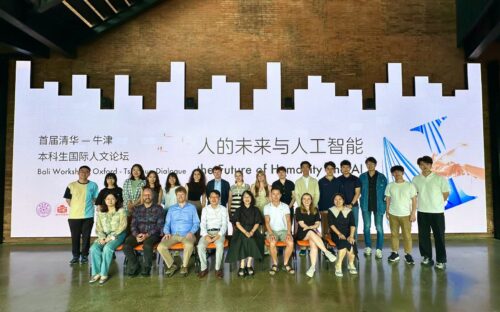Oxford-Tsinghua Dialogue Explores the Future of Humanity and AI
Date: 1/10/2025

This September, a delegation of eleven students and faculty from Oxford, together with colleagues from Tsinghua University, convened for the inaugural Oxford–Tsinghua Dialogue on the Future of Humanity and AI.
The conference combined academic workshops with rich cultural exchange, beginning at Tsinghua University and concluding on Bali Island — likely marking Regent’s farthest research trip to Southeast Asia! Participants explored the social, philosophical, and ethical questions raised by AI, while also developing research papers for potential peer-reviewed publication.
Opening Ceremony in Beijing
The Dialogue began with a formal opening ceremony at Tsinghua University. Peng Gang, Vice President of Tsinghua University, welcomed the delegation with warm reflections on the academic ties between Oxford and Tsinghua, both through OPGDI and beyond.
His words were echoed by Shidong Wang, Director of OPGDI and co-convenor of the Oxford delegation, who emphasised the value of ongoing collaboration, particularly in the present era. For the first time, students — especially undergraduates — were brought into the core of the academic exchange. He reminded participants that the future of AI is not only a matter of technical innovation, but also of shared humanity, responsibility, and the wisdom of global cooperation.
Gu Tao, Dean of Rixin College at Tsinghua University, reinforced this theme, underscoring the importance of sustained academic dialogue and the vital role of the humanities in ensuring a balanced understanding of AI’s impact on society.
Crossing Disciplines and Boundaries
The launch of the Beijing part of the dialogue was through a series of keynote lectures spanning philosophy, history, ethics, and social science by Brian Earp (Oxford & Singapore), Pieter Francois (Oxford), Asher Jiang (Tsinghua) and Fanqi Zeng (Oxford).
The Oxford delegation was warmly welcomed to Tsinghua campus – enjoying traditional cuisine and a tour of the campus, offering a glimpse into everyday student experiences.
The cultural highlight for many came with a journey to the Great Wall, taken together by Oxford and Tsinghua students. This proved a wonderful opportunity for the creation of long-lasting friendships.
“I was completely blown away by the level of hospitality we received from the Tsinghua students,” said Oxford student Maya Mehra, reflecting on the warm welcome.
Moving to Bali: New Perspectives, New Challenges
From Beijing, the Dialogue moved to Bali, where the change of pace and culture provided fresh perspectives and a space for more intensive student-led research exchange.
Each Oxford student was matched with a Tsinghua student and a professor, forming small research clusters designed to foster collaboration and critique across cultural and disciplinary lines.
Students presented the research papers they had prepared in advance, before engaging in structured peer review from fellow students and professors. Topics demonstrated the breadth of student inquiry into AI’s future, including those from Regent’s:
- All Pain No Gain: Uneven Global Distribution of the Benefits of AI and Its Environmental Cost, Maya Mehra (MSt 2024 of Philosophy in Economics)
- The Moral Alignment Between a Large Language Model and Its Country of Origin, Jonjo Hodson (BA PPE 2024)
- Guardrails for the Global Mind: Precaution and Partnership in AI Ethics, Teo Balmus (BA 2024 Philosophy Theology)
- Redefining Creativity in the Age of Artificial Intelligence, Faith Caswell (MSt 2024 in English Literature)
- Are Mindfulness Apps Mindful Tech? Neuroendophysiological and Buddhist perspectives, Kalki Beadell-Kaplan (MSt 2024 in AMES)

This format encouraged students not only to share their research but to interrogate each other’s assumptions, producing discussions that were both challenging and fruitful. As Teodor Balmus (Regent’s) reflected, “The most transformative aspect of the conference was the chance to conduct my own research, to write my research article, and then to present it for the first time at an academic-style conference.”
Closing the Dialogue: Reflection for the Future
Closing remarks delivered by Shidong Wang underlined the central achievement of the Dialogue: the fostering of intercultural and interdisciplinary perspectives on AI. He encouraged students to refine their papers for publication, ensuring that the insights generated during the event can reach a wider academic audience.
Students, too, were eager to articulate the significance of their experience. Faith Caswell (Regent’s) described it as, “nothing short of the trip of a lifetime… I feel so incredibly fortunate to have been granted this opportunity to travel to China and Bali, and to work with a diverse group of individuals.”
Looking Ahead
The inaugural Oxford–Tsinghua Dialogue on The Future of Humanity and AI was more than an academic conference – it facilitated global collaboration, reminding participants that questions of AI require interdisciplinary, intercultural, and intergenerational conversation.
For Regent’s students, the Dialogue offered an immersion in academic life and culture in far east part of the world, while Tsinghua students gained new perspectives from their Oxford counterparts. For researchers of both institutions, it provided an opportunity to mentor across cultural lines and to witness the next generation of scholars grappling with questions that will shape our collective future.
